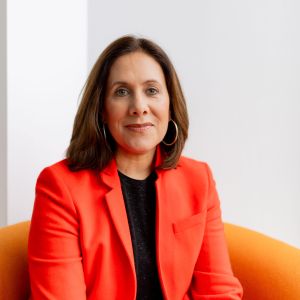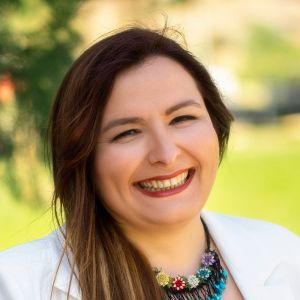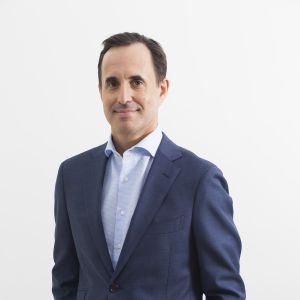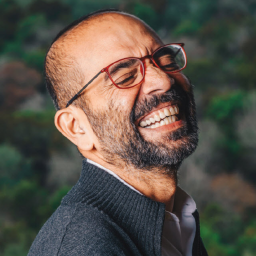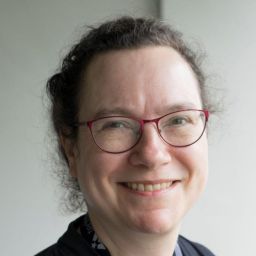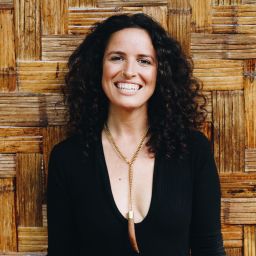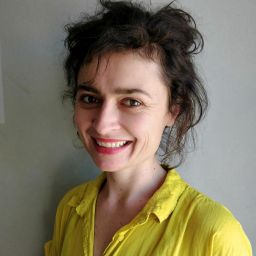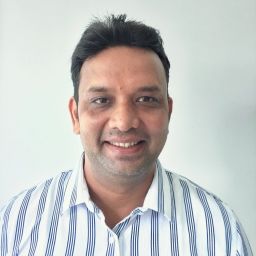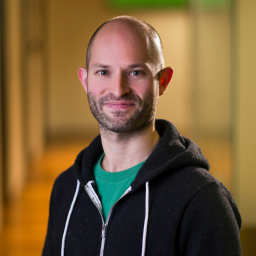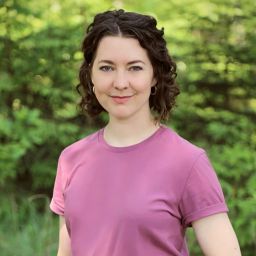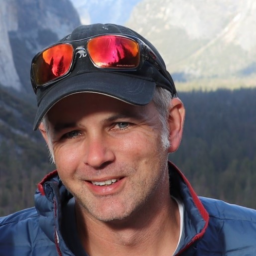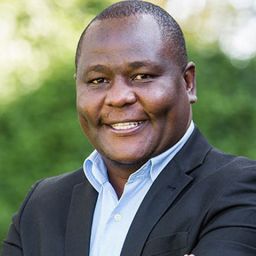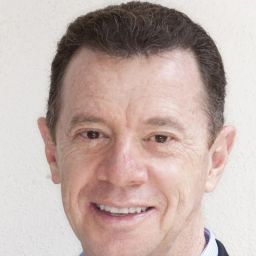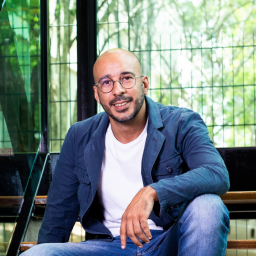Meaningful Business (MB): Can you tell us a bit about the issues you are trying to solve and why you selected them
Ana Paula Manzalli (APM): Throughout Brazil, educational districts lack resources to invest in training teachers. Our country has over 184,000 elementary schools with more than 2.2 million teachers. Yet according to research conducted in 2021, only 13% of teachers believe they have a high level of knowledge about using technology for educational purposes. Hence, besides professional development, there is a need for technology infrastructure. This lack of access to technology within schools was made even more explicit by the pandemic. Necessity helped teachers advance their use of technologies; however, there’s still a long road ahead to improve their use for educational purposes.
Teachers also have to deal with the challenge of large classes with many different learning needs and interests, and the pandemic deepened the learning gaps between poor and rich kids and between black and indigenous students compared to white students.
Sincroniza Educação are experts in active learning methodologies and project management and have extensive experience with technology in education, so we focus on helping districts and educators tackle these issues to improve student learning.
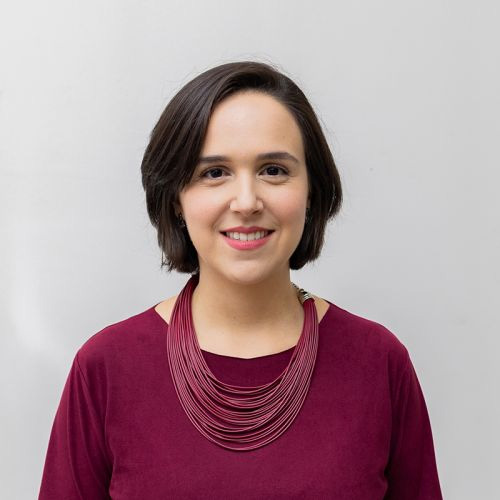
Ana Paula Manzalli, Co-Founder & Head of Strategy, Sincroniza Educação
MB: How is your work tackling those problems, and what impact are you having?
APM: We are the bridge that connects effective educational products and projects to classrooms throughout Brazil. We achieve that by offering professional development to teachers, enhancing the pedagogical potential of our partners’ products, and operating large-scale projects with excellence and efficiency.
Technology implementation projects involve onboarding a new product or educational technology that answers a learning challenge – such as using Khan Academy to improve maths results. These initiatives also include training so teachers can use the products to achieve high results, and effective management and follow-up of key performance indicators.
Professional development projects have three main themes: blended learning, digital educational resources, and active learning. Our training consists of self-instructional courses (with different learning resources such as videos and practical activities) and face-to-face or online training sessions. To address the struggles of teaching large and academically diverse classes, we continue to invest in our differentiated instruction course. It teaches teachers on how to observe and identify the learning needs of students, and address them using routines and other strategies that are easy, quick to apply, and effective to engage all students in learning.
MB: How do you work with partners and the wider ecosystem to achieve your mission?
APM: Our clients are organisations from different sectors: NGOs focused on educational issues, textbook publishers and other companies in the education field, edtechs and tech companies with education programmes, and even companies that are not related to education but have social responsibility programs in that area. By partnering with them, we can work with municipal and state districts to implement programmes focused on teacher training or technology use in education. Usually, we design the projects in partnership with these clients, always considering the necessities and specificities of each district.
MB: What is your ambition for the future of your business?
APM: As mentioned, in 2022, we created a new solution for differentiated instruction, so our plans involve continuing to develop this product and implementing it in as many Brazilian districts as possible.
We have already implemented the solution for the first time, benefiting 16 networks and 515 teachers. Based on this implementation, we collected and analysed the results and improved our solution based on them. Furthermore, considering the learning gap between black and white students in Brazil due to institutional and structural racism, the updated version of our course also focuses on how differentiated instruction can contribute to racial equity in classrooms.
For the future of the business, we want to generate more impact from our differentiated instruction product, allowing teachers to make assertive and conscious decisions based on classroom evidence to reach all students – and support specifically the learning of black students.
MB: How do you measure success?
APM: We aim to synchronise educational systems, schools, and teachers with new practices and processes to promote student learning. So, for us, success is the sum of the impact of our projects and the results of our business KPIs that allow us to keep growing to reach more teachers each year. Therefore, we structured a strategic plan to set our goals and measurement processes.
Since 2017, our projects have helped more than 242, 000 teachers in more than 30, 000 schools throughout the 26 Brazilian states. These numbers represent more than 2,600 training sessions and an indirect impact on more than 4.5 million students.
With feedback from more than 110, 000 teachers, the NPS of our training is 75.4. On a scale of 0 to 10, they grade our trainers on average 9.3 and our content 9.2. For our new product on differentiated instruction, we are structuring research to analyse the results and impacts on teacher practice and student learning more deeply.
MB: What support do you need in order to scale your business and increase your positive impact?
APM: As we want to increase our positive impact with the implementation of differentiated instruction, we are looking for investments to continue developing its contents and carry out an in-depth study of the results generated by its implementation.
In addition to structuring the solution and analysing the results, we are expanding conversations to find partners interested in investing in this product to bring it to more education districts.
________
Quickfire questions
MB: Tell us a mistake you’ve learned from
APM: One of my most important lessons is to listen to people more often whenever we have questions on how to proceed. That means our team, our clients or potential clients, and mainly, our beneficiaries, such as teachers and education districts’ teams. We are on a good path if we know how educators feel and think about something!
MB: How do you spend your time away from work?
APM: I am very good at binge-watching TV series! I like exercising too.
MB: What’s the best piece of advice you’ve ever received?
APM: In Brazil, we usually say, “If you are scared [of doing something], do it scared anyway.” That is a good way to think about courage and entrepreneurship.
MB: What is something you wish you were better at?
APM: I wish I were better at networking and publicising Sincroniza’s work. Taking this interview is an effort toward that!
MB: What is the one book everyone should read?
APM: Sincroniza was responsible for bringing to Brazil the book Differentiated Instruction Made Practical in Portuguese. It is a wonderful book on effective teaching written by professors Akane Zusho and Rhonda Bondie, so I think all educators should read it!
________
Discover the other leaders recognised on the 2022 MB100, for their work combining profit and purpose to help achieve the United Nations Global Goals, here.



